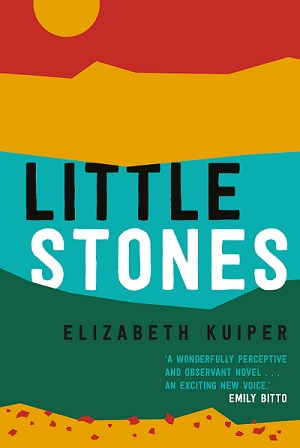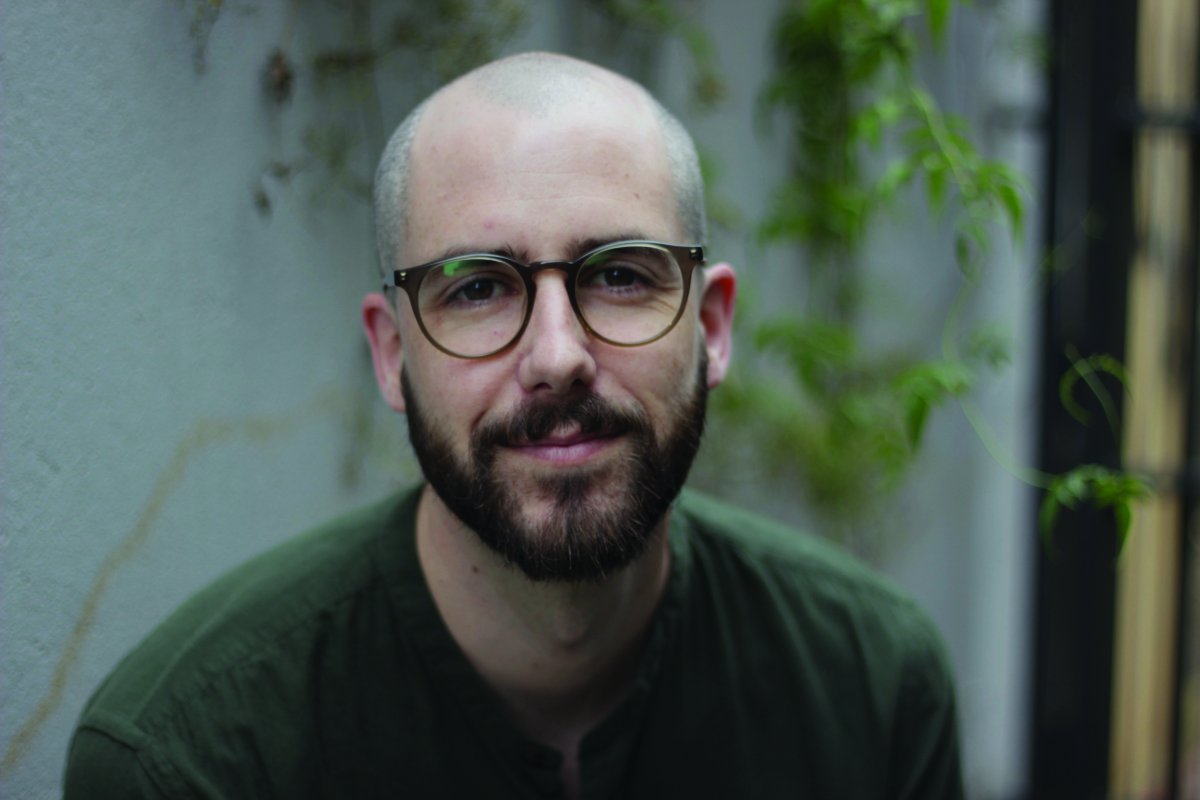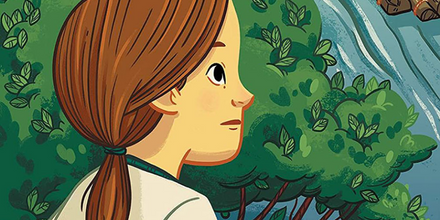Elizabeth Kuiper is a writer and a law student living in Melbourne. Elizabeth grew up in Zimbabwe before emigrating to Perth with her mother. In 2016 she graduated from the University of Melbourne with a degree in politics and philosophy. She is currently completing a Juris Doctor at the University of Melbourne.
Elizabeth’s debut novel is called Little Stones, and it’s a coming of age story set during a time of intense political upheaval in Zimbabwe. Today, Elizabeth Kuiper is on the blog to talk about the 10 things she learnt while writing it.
1. You learn what your ‘cinnamon words’ are.
Journalist Ben Blatt coined this term when writing about how authors tend to gravitate towards certain words more than others. In my case, multiple references were made to the eyes of my characters – a surprising tendency of mine that was remedied through edits.
2. A book is a lot like an iceberg.
There’s so much that goes into a book that the reader will never see: Deleted words, sentences and entire chapters, character background sheets and timelines, research files and passionate discussions about how the story should progress.
3. You need to put the story away for a while.
Imagine reading a novel. Not just a novel, but a rough edit of a novel. Then imagine reading it twice, three times, four times over. All in the space of a month. You’ll grow tired of the story and your brain will become so accustomed to the prose that it’ll fill in the blanks and skim over mistakes. Although putting down your manuscript for a while may feel unproductive, you soon realise that fresh eyes can do wonders for it.
4. Just because you’ve signed a publishing contract, doesn’t mean you will suddenly feel like an author.
Call it tall poppy syndrome, call it imposter syndrome, call it what you like; despite seeing the word ‘author’ appear on a contract or in press releases, it can still take a while to really feel like you own this label.
5. You learn a lot about the publishing industry.
I’m an avid reader, but I never really knew how the books I love were acquired by publishing houses, ended up in bookstores, and found their way to me, until I published one of my own.
6. You learn how to deal with criticism.
It’s hard to receive critiques, particularly when your craft is so personal and feels like an extension of yourself. But having a thick skin is essential if you want your book to be the best it can be. My publisher would often remind me that she engaged so deeply with my work because she cared, so it was important not to let my writerly ego get in the way of the process.
7. People will find your vocation impressive, even if you don’t feel impressive yourself.
When you’re weighed down with edits, dealing with writer’s block, or desperately trying to patch together plot holes, it can be hard to get perspective and remember that you’ve already accomplished a lot. Hearing someone congratulate you and express enthusiasm for the fact you’re publishing a book can be exactly what you need to snap out of your despondence and feel enthused about writing again.
8. Having the support of friends and family is incredibly important.
Writing can be a very solitary experience and it’s vital to have friends and family around you to act as a sounding board, to listen to you vent, and to share your triumphs with.
9. You will come to appreciate other books more and reading them will often serve as a learning experience.
This is particularly true when you witness another author excel in an area you struggle with. If you’re not a natural plotter, you’ll pay close attention to novels with complex storylines and feel full of admiration as you try to envisage how the person behind the book wove all the various strands together.
10. You will feel a sense of loss when it’s all over.
When you’re writing a book, work is never far from your mind. You’ll be thinking of little improvements whilst buying groceries; you’ll suddenly think of a better word to describe something when you’re, say, in the shower. Sometimes you even start to dream about the world of the novel. When it’s all over and the enormous project that consumed so much of your mental and creative energy is suddenly gone, the sense of accomplishment can feel bittersweet because you won’t feel ready to leave the story behind.
Little Stones is out now – buy your copy here.

Little Stones
Hannah lives in Zimbabwe during the reign of Robert Mugabe: it’s a country of petrol queues and power cuts, food shortages and government corruption. Yet Hannah is lucky. She can afford to go to school, has never had to skip a meal, and lives in a big house with her mum and their Shona housekeeper. Hannah is wealthy, she is healthy, and she is white. But money can’t always keep you safe.
As the political situation becomes increasingly unstable and tensions within Hannah’s family escalate, her sheltered life is threatened. She is forced to question all that she’s taken for granted, including where she belongs.






 Sean Wilson tells us about his novel, Gemini Falls!
Sean Wilson tells us about his novel, Gemini Falls!  Ten Terrifying Questions with Lin Thompson!
Ten Terrifying Questions with Lin Thompson!  Holly Ringland: Once you pull that thread, the whole thing will unravel.
Holly Ringland: Once you pull that thread, the whole thing will unravel.
Comments
No comments